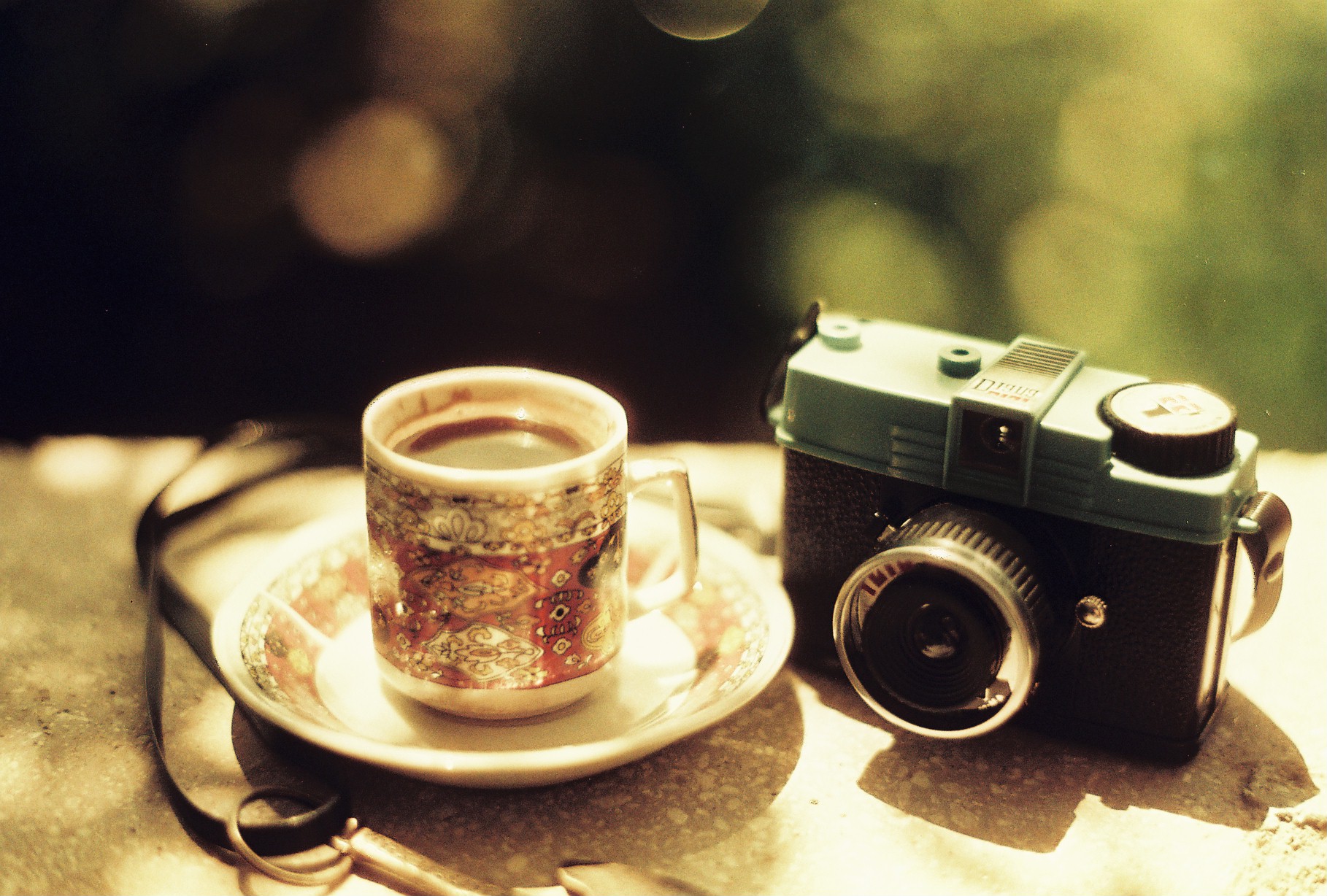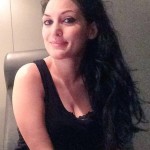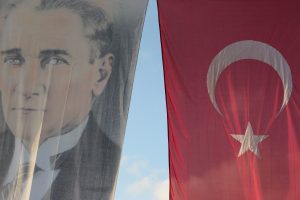By Sofia Demirturk
Like pretty much everyone else in this world, I didn’t choose the nationality I was born into. As the Arab scholar Ibn Khaldun stated, geography is indeed destiny. Without meaning to undermine the power of individuality, often times our dreams, our means of reach and the very way we define who we are is, to a degree, a limited by the very geography we are born into.
I’m not a linguist, but as a native Turkish speaker who also happens to speak some English, I think different in English from the way I think in Turkish. If I feel extremely excited, loving, angry or any other emotion that drives the Mediterranean within me, I automatically switch into Turkish. Even if the person in front of me is unable to speak or understand it, I feel I don’t do justice to my emotions if I speak in English.
And geography is not limited to language: it’s the food, the defined hierarchy in the society in which we were raised, our relationships and even our approach to our private, sexual identities as well.
In 2016, with much excitement and enthusiasm from my side, I bagged an opportunity to work and live in India, a country that was always a dream to me. I fondly remember my dad gifting me his favourite book, Panchatantra, when I was seven and him telling me stories about the Hindu god Vishnu. I remember at college how our professors admired the first Indian prime minister Jawaharlal Nehru and his Third way approach (an ideology in between traditional socialism and capitalism), and my mum reading us a poem by the Bengali poet Rabindranath Tagore that was translated into Turkish.
India has changed me – not in the sense of someone who claims to find the meaning of life, but the very diversity of it has made me realise who I really am. I happened to question the name tags and the hashtags I used to take refuge in, in terms of defining my identity and thoughts. I redefined my political stance as well as distancing myself from my once proud ‘ex-Muslim’ tag.
My closest friends, people who’ve known me since childhood, define me as “eccentric”, an “outlier” and someone with “a mind of her own” – and I take a great pride in that. Being able to make my own mistakes, to chase my dreams, to be who I am.
If I was mean, grumpy, arrogant or, on the contrary, too full of love, down to earth, chatty etc., no one blamed this on my nationality, my culture or my upbringing. I am Sofia, and when I was living in the country of my own origin, I was allowed to be authentic. I did not feel the burden of carrying Turkishness and being responsible for it, nor did I have to be a good example of how Muslims raised their kids.
After all, not being a minority is, apart from anything else, a great comfort zone allowing you to be you without fearing that people will blame your flaws on your loved ones. The transition from Sofia to Sofia the Turk, was fun at times. And yet it was confusing to me too. With my Muslim-sounding first name in India, I tried to reconnect with my Muslim roots, only to get even more confused.
That’s because I spent a good part of my adolescence under Recep Erdoğan, a newly elected politician who promised prosperity and economic growth, who told the skeptical secularists to trust him, despite his Islamist roots. Initially he seemed very liberal, and took bold steps towards minorities.
Back then, Erdoğan was portrayed different from the way he is now. Since then, however, I’ve witnessed a man who has consolidated his power, becoming more and more authoritarian. And each time he fails in some area, he takes in his Islamist roots, talking of the Ummah (or the Islamic brotherhood) and how the West is conspiring against him.
He knew then, and he knows now too, how Islamism or a neo-Muslim identity plays into his vote bank. During his tenure of almost 18 years he tried to build a more conservative, neo-Ottoman identity. As Turks, we are always conflicted about the Ottomans, how Turkish we are, should we denounce the Byzantine Empire, should we trust Ataturk, and so on.
The modern Turkish state’s foundations were based on very Western ideals, though with our very Muslim names and the baggage of the Ottomans on our shoulders, a Turk is always confused about his place in the world. Recently, in the last decade or so, and with due respect to the European Union’s unfulfilled promises, Turkey instead looks ever further towards the Caucasus and the East. As did I.
During my initial days in India, people were even suspicious if I was really Turkish, because all Turks are Muslims. This was despite having stated that I was an atheist. Not fasting during the month of Ramadan made them wonder, and over time people came to their own conclusions.

One of my colleagues even asked how many wives my father has, refusing to believe that polygamy is not permitted in Turkey, or that religious-only weddings do not have a legal standing.
“Oh she is a Muslim, but Turkish Muslims are a different sect of Islam,” they would say. I was deemed not Muslim enough one minute, while too Muslim the next. And although I was denied flats and discriminated against for having a Muslim name, I was also advised not to look for a flat in Muslim neighbourhoods as I had a ‘Christian face’!
Surprisingly, that description does have historic legitimacy, as the majority of the population in parts of Turkey are descendants of Greeks or Armenians. The lands of Anatolia hosted two Apostles and our genetics have our Christian forefathers, while Seljuks or Ottomans gifted us our Muslim names, and the early 20th Century witnessed the demise of an empire which eventually led to Turks reinventing their identity.
The more authoritarian Erdoğan became, the more people wanted to emigrate from Turkey. I have seen some friends losing their jobs in colleges, some have had their passports confiscated. The result of this is that Turkey has been facing a real ‘brain drain’ in the last five years.
Doctors are queuing up for courses to get an opportunity to live and work in Germany; academicians are trying their luck all over Europe; software engineers are fleeing away. Unlike in the 1960s, these modern immigrants are highly skilled, fluent in at least one foreign language, and raised up with staunch western ideals and willing to blend in.
Guess what though? Their names often remind them that no matter how hard they try, they don’t belong. And this time they even lack the Turkish community’s support, as they also don’t fit into their criteria of being a ‘true Turk’. This is subtle racism, never telling you to your face what the actual problem is, but the isolation is always there and you are stuck between both worlds.
Escaping political Islam at home, while being vulnerable to and even a victim of Islamophobia abroad, is both ironic and sad. We diaspora Muslims and ex-Muslims have to prove how we are like everyone else, while also having a job, keeping a roof over our heads and some pals to talk to.
We seek refuge in one thing, and that is the marvelous Turkish cuisine. Just like us it’s everything and anything, Byzantine, Armenian, Balkan and Levantine, all melted together in one pot. Just like Dolma, it doesn’t matter whether it is Armenian, Turkish or Greek. It’s beautiful just as it is.
* Main image credit: Alp Enes Arslan / Flickr
 Gulnur “Sofia” Demirturk is your average Turkish accountant based in Istanbul. Apart from worrying about balance sheets and income statements, she is interested in financial crimes, politics, feminism, Abrahamic religions and Bollywood. She is an atheist but still feels Islam is an important part of her identity.
Gulnur “Sofia” Demirturk is your average Turkish accountant based in Istanbul. Apart from worrying about balance sheets and income statements, she is interested in financial crimes, politics, feminism, Abrahamic religions and Bollywood. She is an atheist but still feels Islam is an important part of her identity.
Follow Sofia on Twitter.

